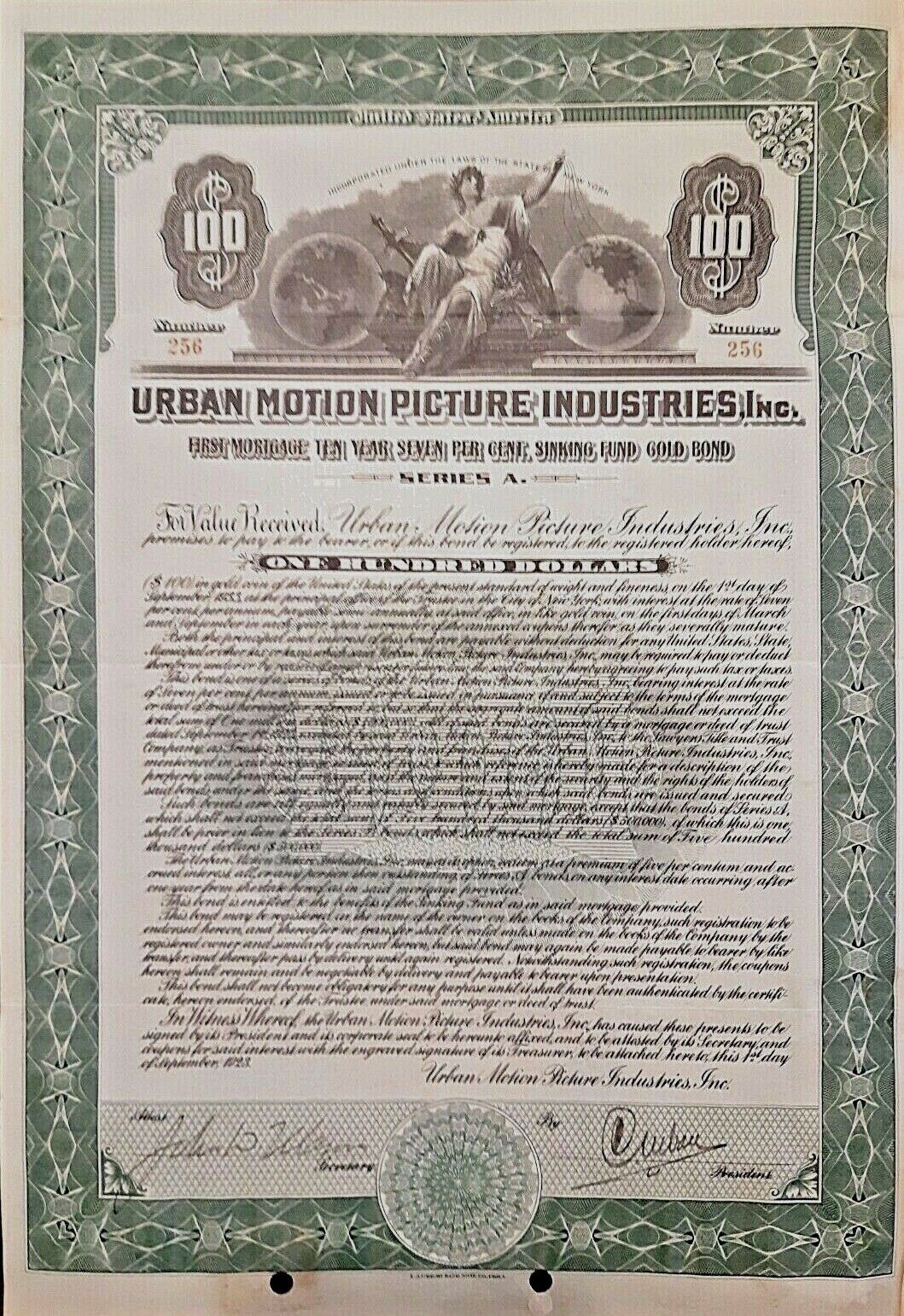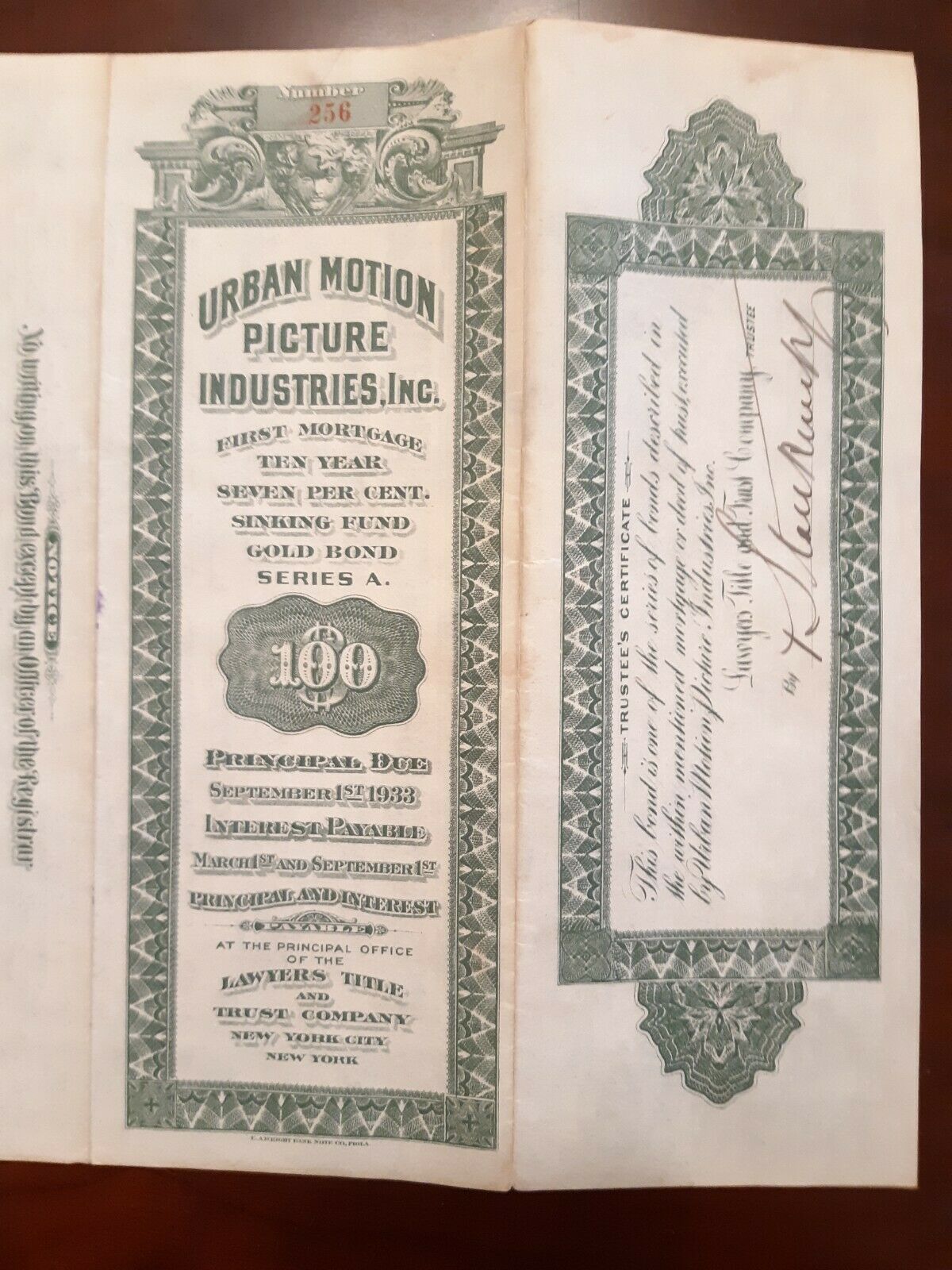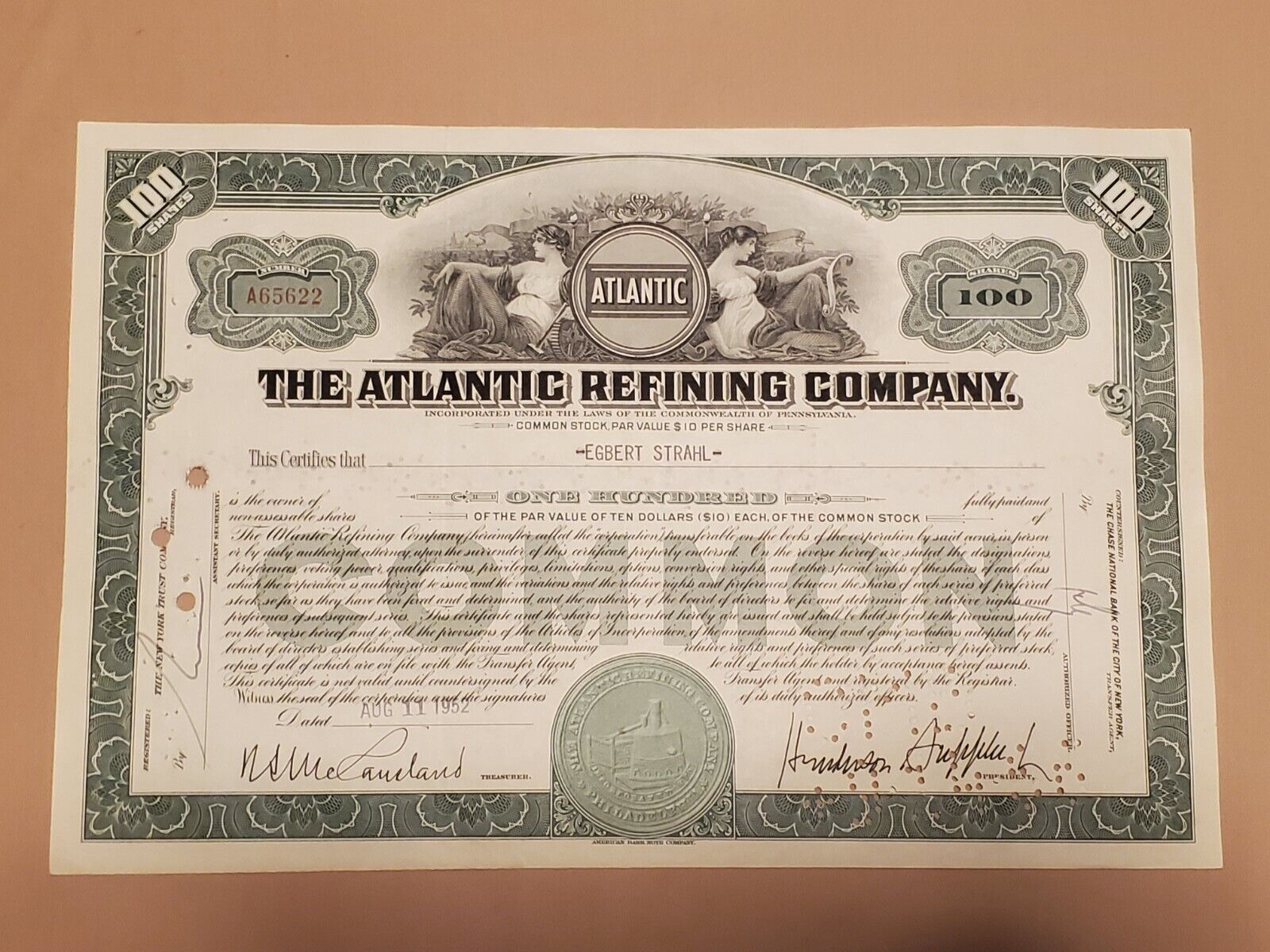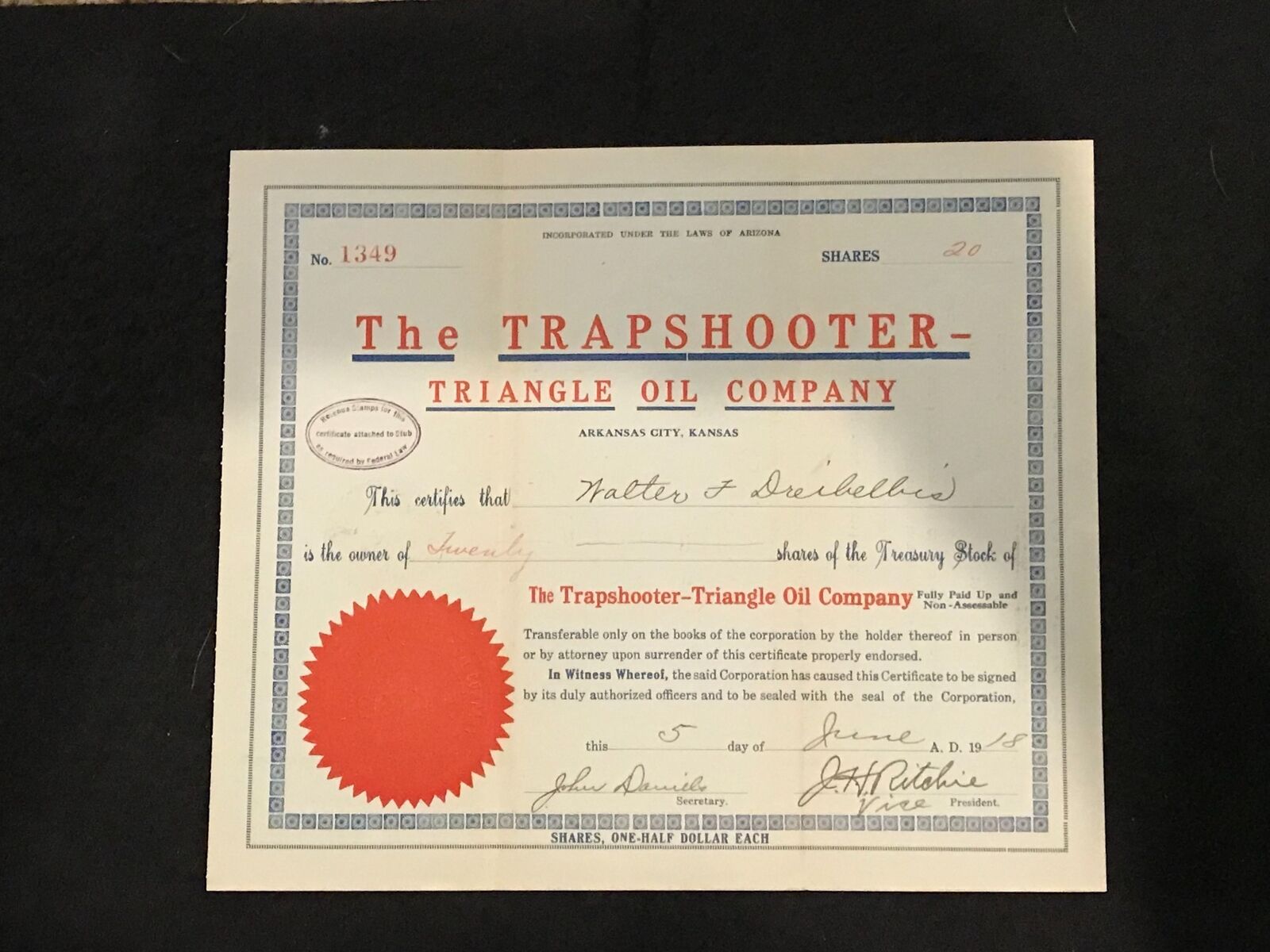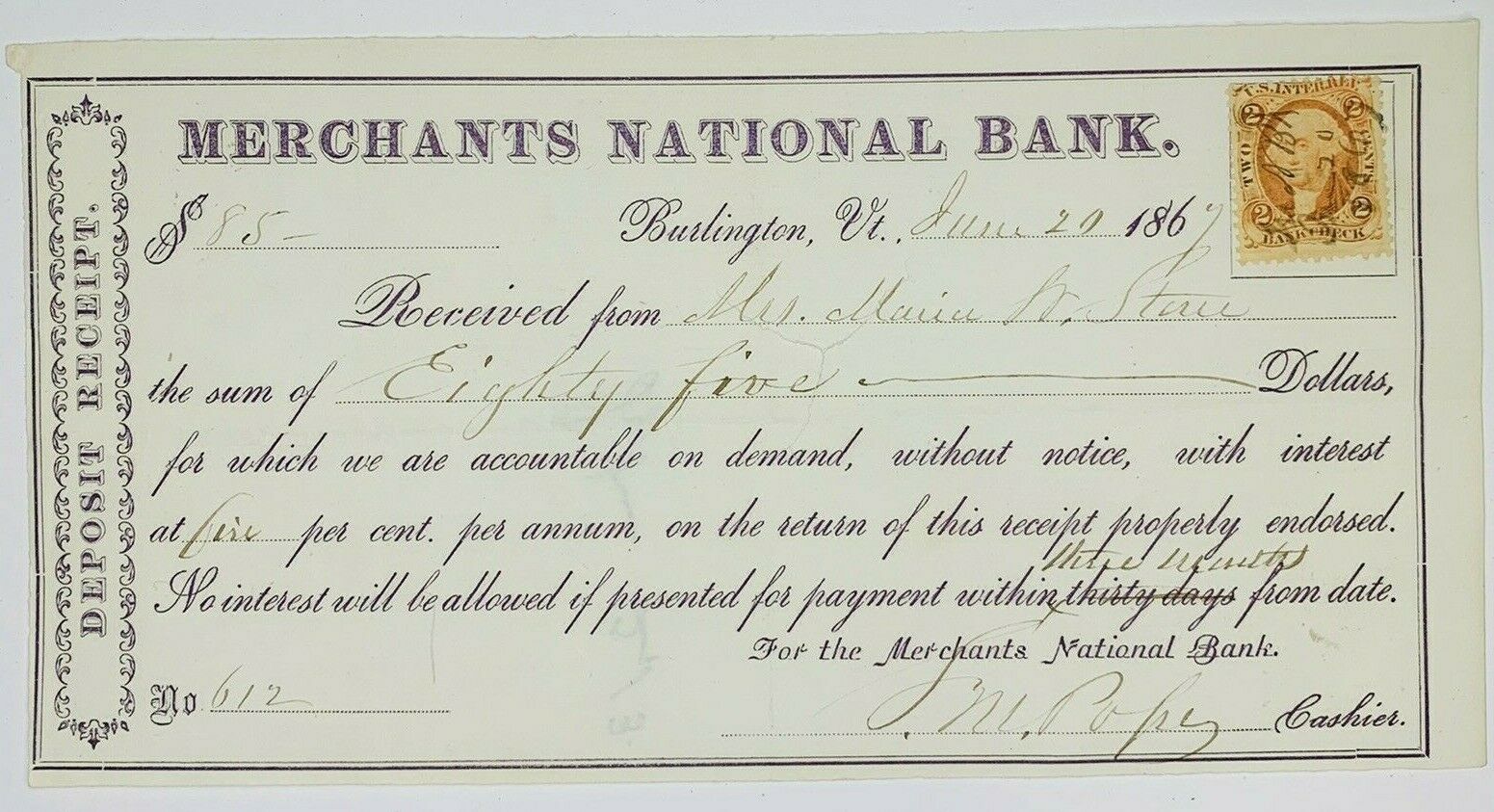-40%
URBAN MOTION PICTURE INDUSTRIES 1923 Rare Bond Stock Certificate - Urban signed
$ 15.83
- Description
- Size Guide
Description
Own an early piece of history for the U.S. and British film industry! Incredible 1923 vintage Urban Motion Picture Industries 0 Gold Bond Certificate, hand signed by Charles Urban himself. The certificate is an intricate emerald green, with black vignette on a white background, and with six bearer coupons still attached.History:
Charles Urban
(April 15, 1867 – August 29, 1942) was an Anglo-American film producer and distributor, and one of the most significant figures in
British cinema
before the
First World War
. He was a pioneer of the
documentary
, educational,
propaganda
and scientific film, as well as being the producer of the world's first successful motion picture
colour
system.
During
World War I
, Urban worked for the covert organisation
Wellington House
and other British propaganda outfits. He produced the documentary feature
Britain Prepared
(1915) for Wellington House, which included Kinemacolor sequences of the British fleet at
Scapa Flow
. Urban was recruited to promote this film and other British propaganda productions in America, although he faced considerable resistance from US exhibitors who were resistant to any form of war propaganda. He worked with the Patriotic Film Corporation, formed by William Robinson to support distribution of what had been retitled
How Britain Prepared
, but he ran into trouble with the British propagandists when he tried to do a deal with
William Randolph Hearst
's
International News Service
, which the British viewed as pro-German and anti-British.
Another company, Official Government Pictures, achieved better distribution by use of more sensationalist advertising, but Urban's task became much easier once America entered the war in April 1917. He edited the classic documentary
The Battle of the Somme
(1916), making the crucial decision to release the footage in feature-length form rather than as a series of short releases. Urban continued to edit and promote British documentary films in America to the end of the war, editing the government
newsreel
Official War Review
. He formed a new business, the
Kineto Company of America
, in 1917.
Urban remained in the United States post-war to re-establish himself as a producer of
educational films
through his umbrella company,
Urban Motion Picture Industries Inc
. He produced the cinemagazine series
Charles Urban Movie Chats
(started 1919) and
Kineto Review
(started 1921), and made the documentary features
The Four Seasons
(1921) and
Evolution
(1923). He built a large studio at
Irvington, New York
, where he planned to introduce a new color film system called Kinekrom, based on the earlier Kinemacolor, and to distribute educational films on disc using the Spirograph. However, his business interests collapsed in 1924 and he returned to the UK in the late 1920s.
He died in
Brighton
in 1942, at age 75, in relative obscurity.
Thanks for stopping by! Any questions, please ask.
